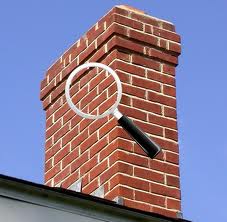Have you ever noticed that your fireplace has dark soot stains above where you burn your fire? Does your home ever fill with smoke or smell like smoke while the fireplace is in use? If so, you may have a chimney and fireplace smoke problem. Not to worry, we can help!
There are many reasons that fireplaces smoke. Below is a list of the most common reasons.
- The damper is fully open.
- The firewood is green or wet from rain or snow.
- The chimney is dirty.
- The chimney isn’t tall enough.
- The flue isn’t large enough for the fireplace opening.
- The chimney is on an outside wall of the house.
- The home can be too tight or too loose!
- There’s also a chance there were design problems when the fireplace was built.
Call Superior Chimney Services Corp. today, so one of our CSIA Certified Chimney Sweeps can assess your chimney and its termination environment to pin point the cause(s) of your fireplace smoke back up and prescribe the resolution!



